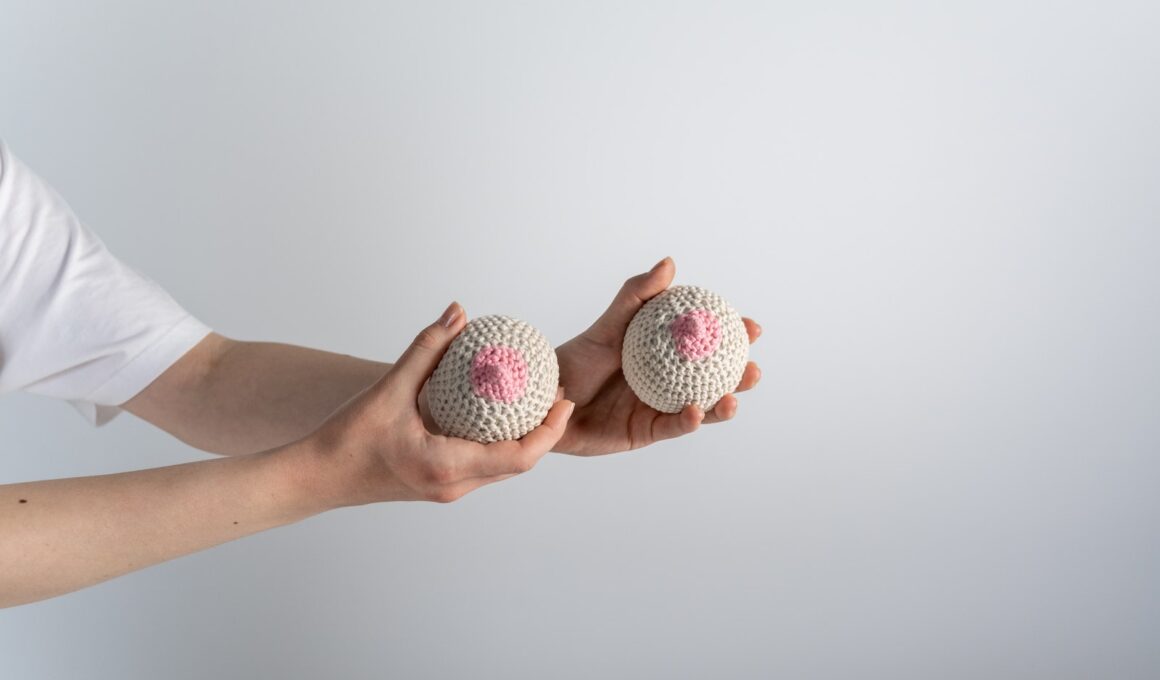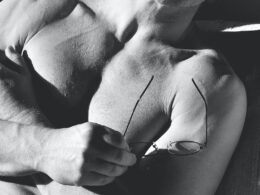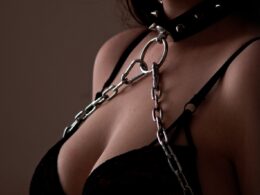A plethora of things can make your breasts feel sore. The most common cause of pain is due to changes in hormones, especially right before your period.
This is because estrogen and progesterone rise around this time, leading to swollen and tender breasts. It’s also why you reach orgasm from breast play—it stimulates the same areas of your brain that are activated by stimulation of the vagina and clitoris.
1. Changes in your menstrual cycle
If you have an irregular menstrual cycle, it can affect your boobs after sex. This is because the uterus can change your estrogen and progesterone levels, making your breasts feel tender, according to Dr. Chen. If you experience this kind of tenderness, talk to your doctor to figure out what is causing it.
For example, if your period is late or you’re experiencing pain in your breasts before your monthly visit to the gynecologist, your symptoms could be an early indication of pregnancy. If you’ve ruled out pregnancy, you might have another health condition, such as endometriosis or uterine fibroids, that can cause painful periods.
Bleeding between your monthly periods or a heavy bleeding period could also indicate that something is wrong. A doctor will want to perform a pelvic exam and blood tests to determine what’s going on.
2. Puberty
When a girl goes through puberty, her breasts change shape and size. She may also notice that her nipples and areolas enlarge. These are all normal changes and not a sign of any medical problems.
During sex and orgasm, hormone levels are high and this can cause your boobs to feel extra tender. This is because sex causes the heart rate to rise, blood pressure to increase and blood vessels to expand, which can all lead to a feeling of tenderness in your boobs.
Another thing that can happen during puberty is a girl getting her first period. This is a sign that the puberty hormones are working. Girls typically get their periods around age 12.
It’s important to talk openly with your daughter about the physical changes that can happen during puberty. This can help them avoid being surprised and scared when these changes start to happen. You can also help her learn body acceptance by letting her know that everyone’s bodies look different and she should be happy with her own. It’s also a good idea to teach her how to use sanitary pads so she is prepared when her first period arrives.
3. Changes in your diet
When you’re sexually aroused, your nipples swell with a rich flow of blood. They also signal the brain to release oxytocin, which allows you to feel pleasure and creates an emotional bond during intercourse.
If your boobs hurt after sex, it’s likely because of an imbalance of fatty acids called prostaglandins. The good news is that nonsteroidal anti-inflammatory drugs like ibuprofen can help.
You can also try switching to a soft, full-coverage bra with wide shoulder straps and easy-to-adjust back closures. And be sure to wear a support pillow while you sleep. Using topical nipple massagers or applying a hot or cold compress may help relieve pain as well. If breast pain persists, talk to your doctor about the possibility of a hormone imbalance. She can recommend a different birth control pill or other method of hormone therapy to see if your symptoms improve. She can also refer you to a specialist for a more thorough exam if needed.
4. Birth control pills
If you take hormonal birth control pills, like the combined pill, the ring, or the hormone-free contraceptive patch, they can make your boobs feel a little tender. It’s pretty common, but a lot of people don’t notice it, or it goes away within a few months. If the pain persists, talk to your doctor or gynecologist.
Some girls experience achy boobs at certain times of the month, usually in the days leading up to their period. This is called cyclical breast pain and it’s caused by the normal increase in progesterone right before your menstrual cycle. Hormonal birth control can alleviate this symptom by regulating your hormone levels.
Another great thing about hormonal birth control is that it can make your periods lighter and less painful, a condition known as dysmenorrhea. That’s especially true if you use the implant or the hormonal coil, which contain very low doses of estrogen. Just be sure to get plenty of vitamin D, which can also help reduce period pain.
5. Hormonal imbalance
If you are experiencing breast tenderness and arousal after sex but don’t think you are pregnant, there may be another reason for it. In addition to oxytocin (the “feel good” hormone), sex releases testosterone, which can thicken the tissue in your nipples and create new lumps or cysts. This can happen if you have a low level of the hormone or it happens as you go through menopause.
Women can also experience sore boobs because of hormonal changes during pregnancy, puberty and during certain stages of perimenopause or menopause. But if the pain persists and you don’t know why, it’s always best to talk to your doctor.
The first thing your doctor will check is the levels of specific hormones, like melatonin for sleep, adrenaline to prepare the body for stress, oestrogen to increase the lining of the uterus and progesterone to reduce blood flow to the nipples during the second half of the menstrual cycle. If they are too high or too low, it can cause various symptoms, including achy boobs and fatigue.





